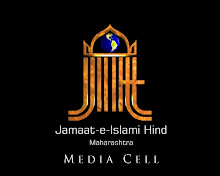Israel: Defeat in Its Victories?
The global upsurge of anger at Israel’s criminality may turn its military victories into political defeats
EDITORIALS 9
Economic & Political Weekly EPW june 19, 2010 vol xlv no 25
The recent Israeli military attack on the six-ship “Gaza peace flotilla” – carrying medical, food, educational and civil supplies to Gaza to break the illegal and inhuman blockade by Israel – has been met with shock and condemnation globally.
Much of the facts relating to this case are well known by now. Israeli armed forces attacked and boarded these ships in international waters, killing as many as 19 people. Israel claimed the soldiers were “forced” to fire when they were attacked by passengers on the ship Mavi Marmara, but subsequent testimonies by journalists and activists on the ship have shown this to be another example of the infamous Zionist Hasbara or spin-doctoring of public opinion through half-truths and outright lies. Autopsy reports of those killed indicate that many were shot in the back or the top of their heads, from helicopters flying above. It appears that the Israeli military attacked the ship at about 4 am when most of the Muslim passengers of the ship were on the top deck for the morning prayers.
When armed men attack civilian vessels in international waters, kill people and confiscate the goods, it is known either as piracy or an act of war. Israel has the dubious distinction of having the maximum number of United Nations resolutions against it, but this has made not the slightest of difference to its behaviour. It has attacked its neighbours, occupied territory in Palestine, Jordan, Lebanon and Egypt; it has massacred refugees and assassinated its political opponents; it has undeclared nuclear weapons; it has continued building illegal settlements in Palestinian lands. Just recently it used forged passports of British, Australian, French and other citizens to send its agents to murder a Palestinian official in Dubai. Yet Israel remains Teflon-coated against even the most basic international censure or punishment. This is, as is well known, almost entirely due to the blanket protection provided by the United States (US).
This close embrace by the world’s only superpower has meant that many governments have found it profitable to deal with Israel, which has been only too willing to pander to demands for arms, technology and funds. India has emerged as a significant trade and military partner of this rogue state in recent years. The policy shift – from unequivocal support for Palestine to warm ties with Israel – was inscribed in the economic and geostrategic shift made by the Indian state in the early 1990s. It was, however, under the Hindutva-inspired foreign policy regime of the National Democratic Alliance that ties with Israel were ramped up from mere “pragmatism” and given an ideological and cultural basis. Given sanctions and other legal and political restrictions, Israel supplied India with much of the arms and technology that the US could not directly supply, and thus served a useful proxy for defence relations with the US for India’s security establishment.
In the aftermath of the India-US nuclear deal and the removal of restrictions on transfer of technology and defence equipment, Israel has lost its position of being a conduit for US arms and technology that could not be accessed directly. Further, in the past few years, the Indian state’s economic and geostrategic clout has increased considerably. It was, perhaps, a combination of these and other factors, which enabled the Government of India to condemn the Israeli action on the Gaza flotilla in clear terms. This is a welcome move, after many years of prevarication. The Government of India should follow this up with an increase in its aid to Palestine and by working together with other countries to reach humanitarian assistance to the people of Gaza and the West Bank.
It is becoming increasingly apparent that Israel is testing the patience of even its old, trusted allies. Even the US has had to publicly rebuke Israel over continued settlement activity in the West Bank, while Turkey, whose ships and citizens were targeted in the recent attack, has now taken a very strong stand against its policies on Palestine. It should be remembered that Turkey was one of Israel’s closest military and economic allies in the region. Right wing governments in France and the United Kingdom, traditionally close to Israel, have come out with some of the strongest statements against Israel’s aggression. Sections among American Zionists are questioning Israel about “occupation” and a policy of “racism” and “discrimination” against Palestinians, which is “akin to apartheid”. Popular coalitions are emerging in all countries to support the Palestinian freedom struggle. It is time that, independent of the government, India’s lively and large political and social movements come forward to become an active part of this global upsurge of popular support for Palestine.
http://epw.in/epw/uploads/articles/14874.pdf

No comments:
Post a Comment